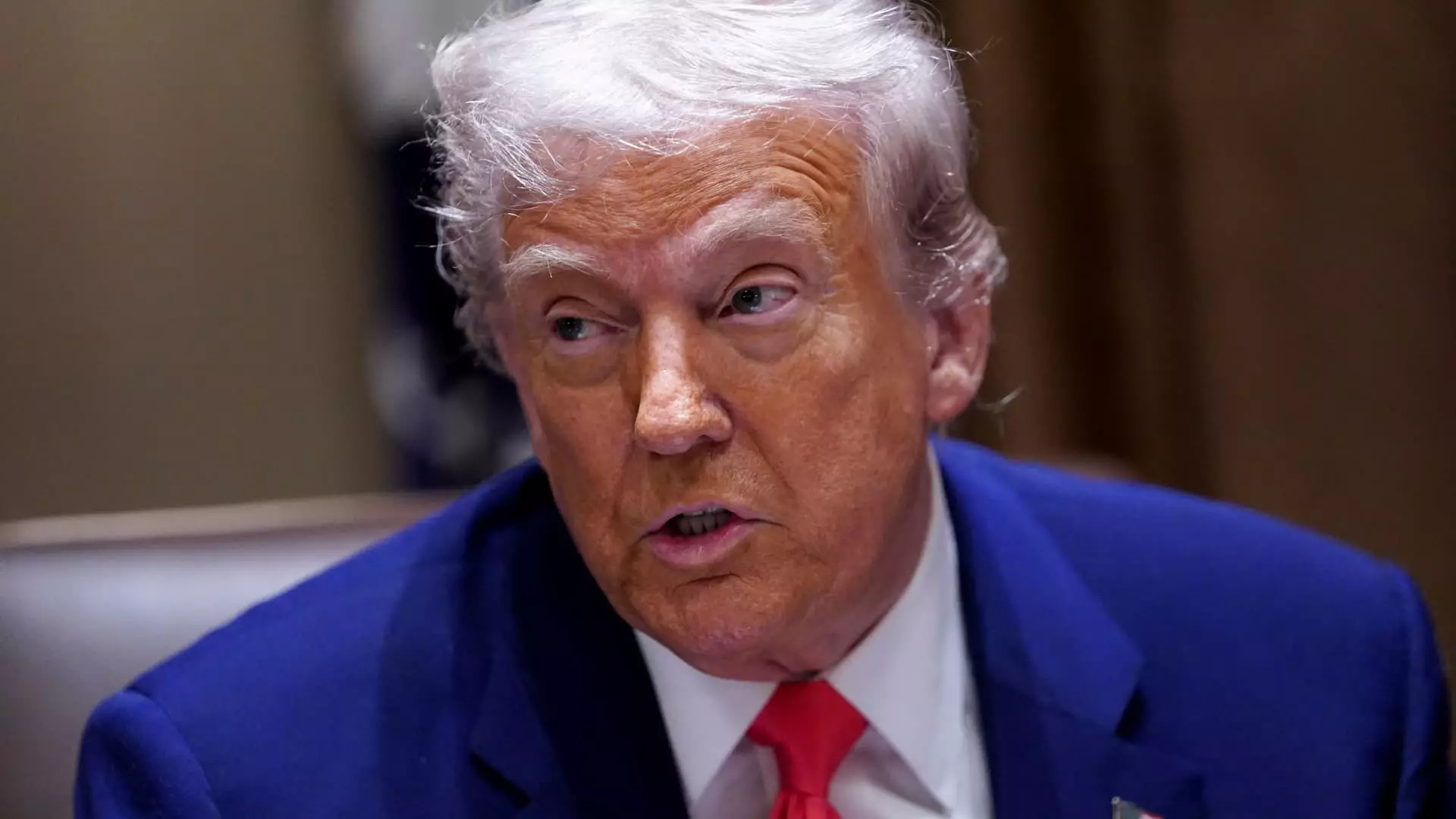The recent spike in tariffs on Chinese imports, hitting an astounding 145%, has thrown the U.S. economy into a precarious state. Renowned economist Erica York highlights a grim reality: such significant duties threaten to sever the majority of trade ties between the U.S. and China. With tariffs soaring into triple digits, the implications extend far beyond mere percentages; they signal a possible plunge into a self-imposed economic abyss. Trade relations, once a pillar of modern economic prosperity, are being dismantled piece by piece in what can only be described as a reckless gamble by the Trump administration.
The apparent decline in the stock market serves as a palpable reaction to this increasing economic tension. On a single day, gains from previous trading sessions were obliterated, underscoring the immediate effects of uncertainty and unpredictability in U.S. trade policy. The confirmation of 145% tariffs, coupled with an abrupt adjustment to a 125% rate in recent days, left investors jittery at best, raising critical questions about the stability of markets moving forward. As York astutely notes, this isn’t merely a temporary setback; the underlying threats remain alive and well, hanging heavily over both investors and consumers alike.
A Hostile Shift Towards Protectionism
The formal announcement of the tariffs coincides with a striking shift in the U.S. stance on trade, pushing the nation towards an isolationist, protectionist future. Even with Trump’s recent attempt to temper the tariff on imports from other countries to 10% for a limited timeframe, the protectionist undertones are unmistakable. The U.S. hasn’t seen such an aggressive approach toward tariff imposition since the 1940s, a time long before globalization and interconnectedness shaped our economy. It raises a haunting question: are we regressing into a bygone era of economic myopia?
The impact of these tariffs isn’t just theoretical; it’s an impending reality. Experts warn of heightened costs for American consumers, driving prices up across the board. Manufacturers reliant on Chinese products or components will inevitably pass these costs onto consumers. Thus, Americans are confronted not only with the creeping specter of inflation but also with the daunting possibility of shortages in goods where no alternative supply exists. The economic hit from these tariffs cannot be understated; it’s less about “America First” and more about “America Alone.”
Taxing Times: The Costs of Protectionism
A report from the Tax Foundation starkly underscores the financial ramifications of Trump’s tariff policies, projecting a revenue increase of $171.6 billion from these levies. While some may cheer the potential rise in federal revenue, it’s a misleading triumph. This increase marks the biggest tax burden on American citizens since 1993, surpassing the previous hikes implemented by both President George H.W. Bush and President Barack Obama. The truth is clear: the complexity of tariffs will lead to higher expenses on everyday items, effectively serving as a hidden tax that negatively impacts ordinary Americans.
Moreover, China has indicated a resolute stance against the U.S. tariffs, launching retaliatory measures that heighten the stakes of this economic chess game. With Chinese levies rebounding to 84% from 34%, the intricacies of trade relations are being reshaped into a contentious battlefield. The ramifications of this escalating trade war threaten not just sector-specific repercussions but could spiral into widespread economic disturbances.
A Crossroad of Ambition and Realism
As the complexities of international commerce evolve, so too must our approach to trade. The mid-century mindset of isolationism poses risks that far outweigh short-term protective measures. Striking a balance between safeguarding American interests without strangling global economic engagement is vital. Trump’s relentless focus on tariffs may foster short-lived gains for a select few, but the broader implications paint a bleak picture for economic growth and innovation.
In an era defined by globalization, attempts to retreat into a shell of protectionism echo the follies of the past. It is critical to understand that while tariffs may seem a logical recourse in the short term, the long-term consequences could usher in an era of economic stagnation that we cannot afford. The clock is ticking; as trade politics heat up, the path forward must navigate away from isolationism towards collaboration, before it’s too late.

